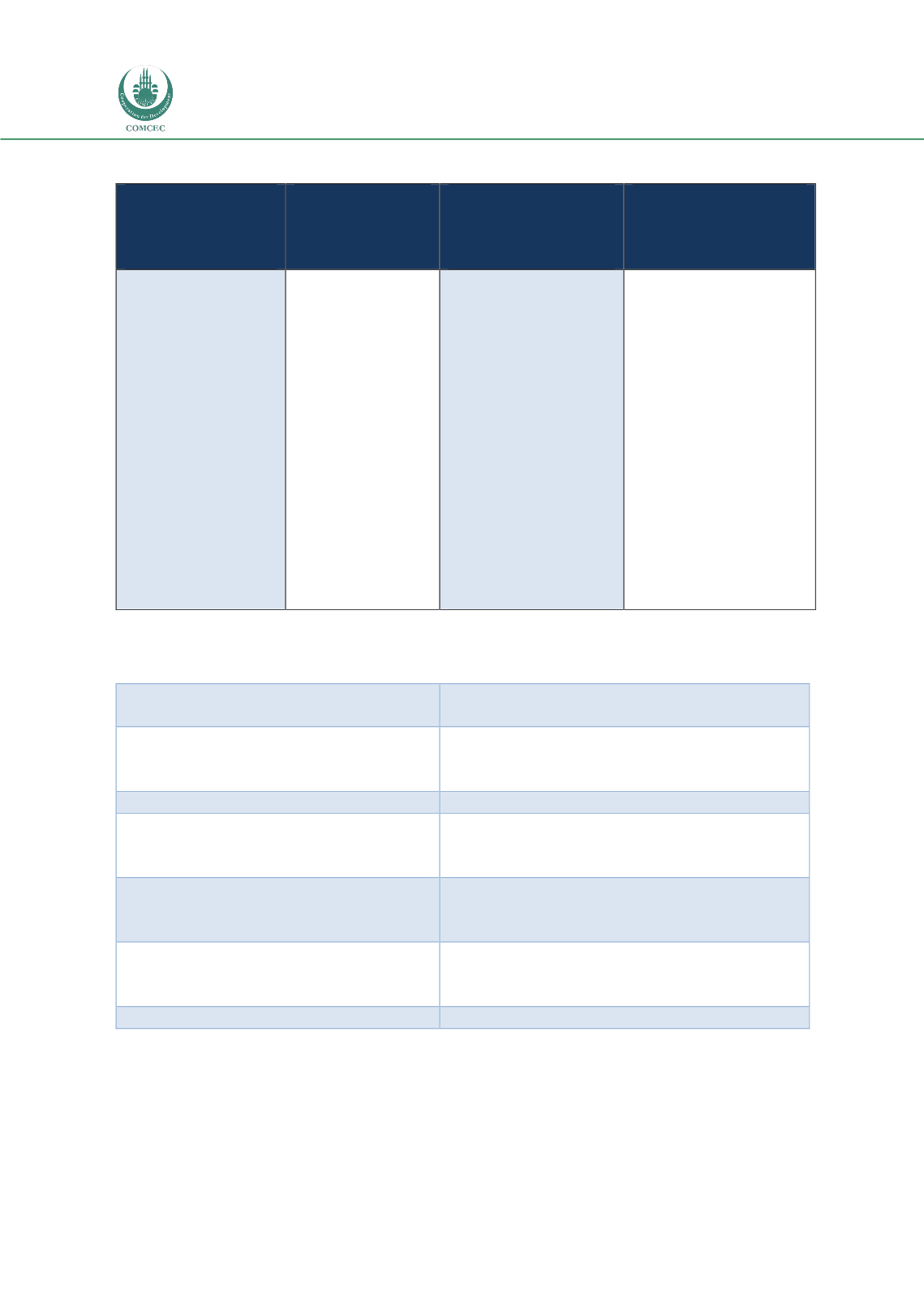

Improving Agricultural Statistics in the COMCEC Region
156
Table A1.5: FAO Composite Indicators of the Agricultural Data Quality Framework
Capacity Indicator I
(Prerequisites:
institutional
infrastructure)
Capacity
Indicator II
(Input: resources)
Capacity Indicator III
(Throughput:
methods
and
practices)
Capacity Indicator IV
(Output: availability of
statistical information)
Legal framework
Coordination in
statistical system
Strategic vision
and planning
Integration of
agriculture in the
national
statistical system
Relevance (user
/interface)
Financial
Human
resources
Statistical software
capability
Data capture
technology
IT infrastructure
International
classifications
General statistical
activities
Agricultural
market and price
information
Agricultural
surveys
Analysis and use of
data
Core data
availability
Timeliness
Quality, reliability
and consistency of
data
Data accessibility
Quality
consciousness
Source: FAO, 2012.
Table A1.6: Proposed Dimensions of the Agricultural Data Quality Framework (ADQAF)
1. Prerequisites of Quality
The essentials to be in place before quality are
implemented
2. Relevance and Completeness
The data that is provided should be relevant to the
country, collected following the statistical
standards, with complete information (metadata)
3. Methodological Soundness
4. Accuracy, Reliability and Clarity
Source data and statistical techniques are sound
and statistical outputs sufficiently portray reality
and are clear to understand
5. Serviceability and Coherence
Statistics, with adequate periodicity and
timeliness, are consistent and follow a predictable
revisions policy.
6. Comparability and Subjective
Statistics provided should be biased towards the
agricultural cause and comparable across
countries and institutions
7.
Accessibility
Data and metadata are easily available
Source: Ouma and Mayinza, 2010.

















